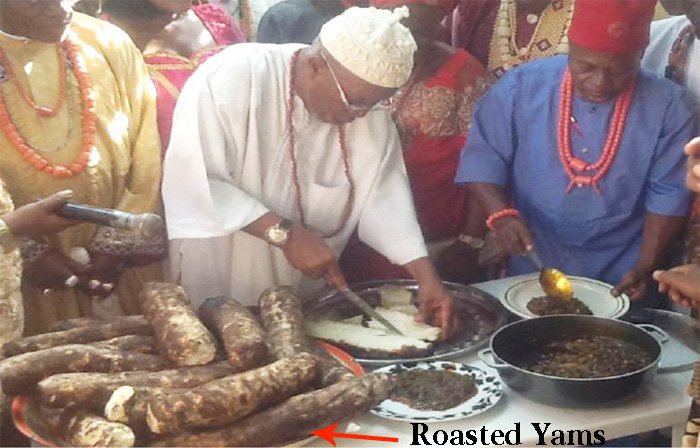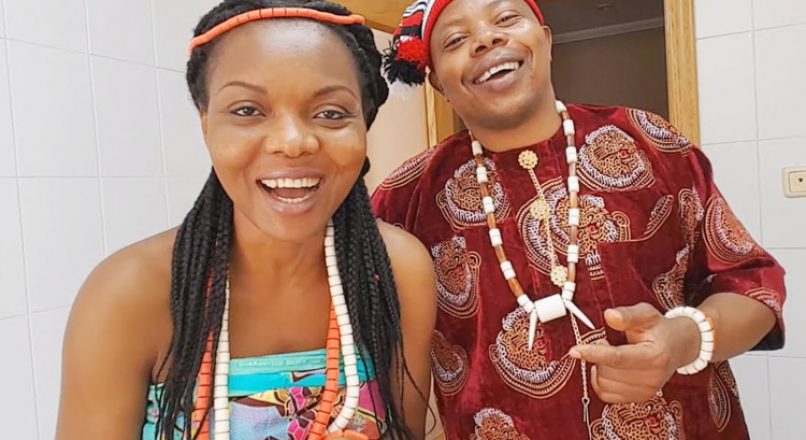Igbo people are one of the most popular ethnic groups in Nigeria, aside from their penchant for business and commerce, they have other unique characteristics that distinguish them from the many other ethnic groups in Nigeria.
Take their culture for instance, like traditional marriage in Igboland, There is a unique twist to it. An Igbo girl is considered married to a man once the bride price is paid.
In the case of divorce, the bride price is to be returned but let’s talk about marriages and Igbo facts later.
The Igbo tribe is one of the major tribes existing in Nigeria with vibrant youths that can be found all over the world. Archeological evidence proves that the Igbos have existed for more than a thousand years.
The Igbo people make up one of the major ethnic groups of Nigeria, We have quite a number of ethnic groups in Nigeria like the Hausa, Yoruba Tiv, Ibibio but that’s a story for another day. Other ethnic groups in Nigeria consider them as being money-conscious… an allegation that I am yet to ascertain it’s authenticity.
The Igbo’s are very intelligent, vibrant, industrious and smart people who have contributed a lot in the civilization of many other countries of the world.
What is Igbo People Religion
As of 2020, Over 80 percent of Igbo people are registered Christians but prior to this time, traditional worship was a mainstay religion.
The Igbo traditional religion was based on the belief that there was one creator, God which is referred to as Chukwu Abiama or Chineke (God that creates). The creator, according to the myth, can be approached through numerous other deities and spirits using natural objects or even animals as ‘passage‘.
They also believed that their ancestors protect their living descendants and are responsible for rain, harvest, health, and children. In reciprocation, the people are expected to offer animal sacrifice. Fowls, goats, cows or even human beings especially virgins, in austere cases, could be used for these sacrifices. The people fear that the anger of the gods will be kindled if this is not done properly.
These and other practices by the traditional religion ensured the wide reception Christianity enjoyed in its earlier days in Igboland.
There is an elaborate article here about the religion of the Igbo Tribe
Igbo People Culture
the Igbo culture is also called omenala ndi Igbo The original purpose of the culture was to guide, protect and direct its indigenes with dos and don’ts and when one goes against the set rules, there are consequences, always.
One of the popular cultural practices that have remained to this day in Igboland is the new yam festival, popularly called Iri ji. When directly transcribed to the English language, Iri ji means – eating of yam. It is a popular festival in Igboland as different dates are fixed by different kingdoms in other to observe this cultural celebration.
Other cultural festivals celebrated in Igboland includes igba nkwu, iwa akwa, Masqurade festivals, etc.
The ruler of different Igbo clans are known as the Eze or Igwe, popularly referred to as the King. It is the responsibility of the king, together with his cabinet members known as the ndi nze or Ozo to fix dates for new yam festivals and masquerade festivals.
What is Igbo Cultural Foods
The Igbos have a lot of foods that are used to identify them.
The main cultural foods for the Igbo people are made from vegetables, grains like maize, and especially tubers like cocoyam, cassava, and yam. Other staple foods includes rice, beans, and groundnuts.
Generally, foods made from cassava tubers are quite popular, – fufu, Abacha, Garri, etc. Garri and fufu are usually served with soups. We have a plethora of soups in Igboland.
1. Oha soup
2. Ofe Okro (Okro soup)
3. Ofe Onugbu
4. Ofe Egusi
Main cultural food in Igboland include roasted yam (usually served with palm oil), Okro Soup (served with fufu), and Abacha – African salad (served with palm wine)
Roasted yam is the food eaten at the new yam festival in Igboland. It is usually roasted and served with palm oil sauce but if you like, you can cook, fry or make porridge out of it.

Igbo History before Colonization
So much has been said about the history of the Igbos before Nigeria’s colonization.
Before colonization, the Igbos were politically disorganized and ruled only by chiefs, Igwes or Ezes. Nri, Agbor, and Onitsha were some of the popular kingdoms ruled by a chief or obi, as in the case of Onitsha.
Igbos were yam farmers before colonization, hence the yam festivals. While the majority of them have now moved to other business opportunities, some Igbo people are still farmers till date.
Facts About Igbo People
Aside from the fact that the Igbo tribe is considered the Richest Tribe in Nigeria, there are other facts about the Igbo people that I bet you may never have heard about.
1. Igbos believe they are descendants of Gad, the 7th Son of Jacob. This is quite a popular tale, CNN even made a story about it, however, DNA technologies are not yet smart enough to authenticate this claim.
2. Igbo People once fought a civil war that lasted for two and a half years.
3. Igbos are the most traveled race in Africa
4. In many Igbo kingdoms, a leader (Chief, Igwe or Eze) is neither elected or selected by the people, rather a particular family is chosen by the gods and the title remains with them from generation to generation, from father to the first son.





Comments ( 2 )
Thanks for this article, Igbo heritage will live forever, I pity parents that don’t teach their kids our local languages. The Igbo people are unique and different from every other ethnic group in west Africa. This kind of article should sound as a notice to the younger generation.
Igbo kwenu! I am proud Igbo man. I love my people, I married an Igbo girl too. Complete Igbo family.